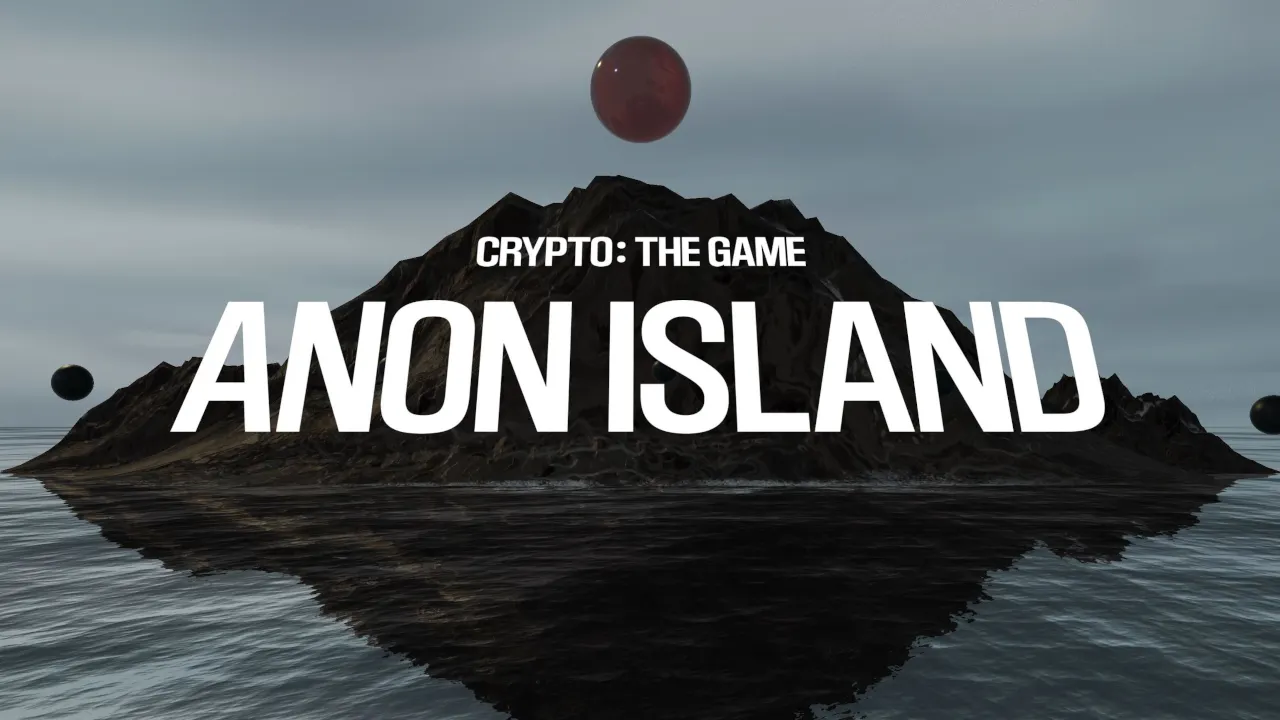The first season of Crypto: The Game was a viral, “Survivor”-inspired phenomenon that had players around the world competing in online and IRL challenges for a chance to win a prize pool of $115,000 worth of Ethereum (ETH). And everything is apparently bigger the second time around.
Tickets to play in season 2 of Crypto: The Game are available today for a season with more players, big industry sponsors, and new on-chain game mechanics—and it’s all happening on Ethereum scaling network Base. But with everything kicked up a couple notches, can the new season recreate the same viral magic that captivated the crypto faithful earlier this year?
Season 2, dubbed Anon Island, will begin on April 8 at 12pm EST—following an early access mint starting today, and a public mint tomorrow. Players who competed in the first season are all allowlisted for the early access mint—a thank you from the game’s founder, Dylan Abruscato, to those who supported the game from its beginning.
The mint highlights one of the biggest changes to the game: This time around, the entries are represented by NFTs. This introduces some interesting new on-chain mechanics to the game. When someone gets voted out, their player NFT will convert to Juror NFT—one that will allow them to vote on who wins in the final rounds (another riff on the “Survivor” reality show theme).
The big change for S2 of @cryptothegame_ is that players will mint an NFT for a spot in the game.
When you're voted out, the NFTs turn from Player NFTs to Jury NFTs.
But this also means that you can sell your NFT at any point for your spot in the game. Think hedging a parlay... pic.twitter.com/OABP4wu0US
— Dylan Abruscato (@DylanAbruscato) March 28, 2024
Entries being NFT-based also means that people can “cash out” at any point in the game by selling their NFT, in theory, they should get more valuable as the game progresses, and they represent a higher chance at winning the total prize pool. Additionally, players who get voted out can get back into the game by buying one of the entry NFTs on the secondary market after being voted out.
Abruscato told Decrypt that by the time the first season went viral, it was too late for any new players to join—and it couldn’t immediately capitalize on the new wave of interest and players that would have joined. He hopes that the switch to an NFT-gated game will allow for more players to participate, and for the game to continue growing as it gains more and more attention.
There will be 800 total NFTs sold between both mints, meaning there could potentially be nearly double the players this time around. The prize pool for season 2, similarly to season 1, is generated via ticket sales. If all 800 tickets sell out at 0.1 ETH (about $325), then season 2 will have a prize pool of 80 ETH—minus the 10% cut that Crypto: The Game keeps for operational expenses. That comes out to about $234,000 worth of ETH in the end.
The new season also brings in big sponsors. Abruscato was hesitant to tell Decrypt exactly how the sponsors will interact with the game for fear of ruining any surprises, but said that Lens, Uniswap, Wormhole, POAP, and Safe are all sponsoring certain parts of the game.
The addition of sponsors highlights the next phase in the growth of Crypto: The Game—turning it from a lightning-in-a-bottle phenomenon into a scalable and repeatable business.
Abruscato has been a lifelong fan of “Survivor” and created Crypto: The Game out of his passion for the enduring reality game show. After the huge viral success that his creation saw in season 1, he’s now hoping to make it a mainstay. Besides keeping 10% of the prize pool to continue building ahead, the game will also generate revenue from secondary sales of the NFTs, along with sponsorship revenue from the aforementioned firms.
Why build on Base? While Abruscato told Decrypt that many Ethereum layer-2 networks reached out to him about becoming the new home for Crypto: The Game, he said that lots of people from Base and Coinbase had participated in the games first season and that the early support meant a lot to him.
The Game Returns pic.twitter.com/xcT1A7Z88s
— Crypto: The Game (@cryptothegame_) March 5, 2024
Crypto: The Game earned rave reviews from players, some of whom called it the most fun they’d ever had in the crypto world. Some observers were also clearly eager to get into the mix the next time around, creating an opening for season 2 to meet that clear demand. It felt like a true micro-phenomenon that captivated all involved.
“One of the things that surprised me the most was how 24/7 it was,” Abruscato admitted. “I kind of assumed that people would log in, play a round, and then log off. It really ballooned into this 24/7, 10-day game show. If you weren't active you were considered ‘not in it to win it.’”
Sequel season Anon Island will undoubtedly be bigger, based on the plans, but the burning question is whether it will also be better—or at least if it can still feel like a viral sensation when there’s more on the line this time around. The eyes of the crypto world will surely be watching come April 8 when Anon Island kicks off.
Edited by Andrew Hayward

